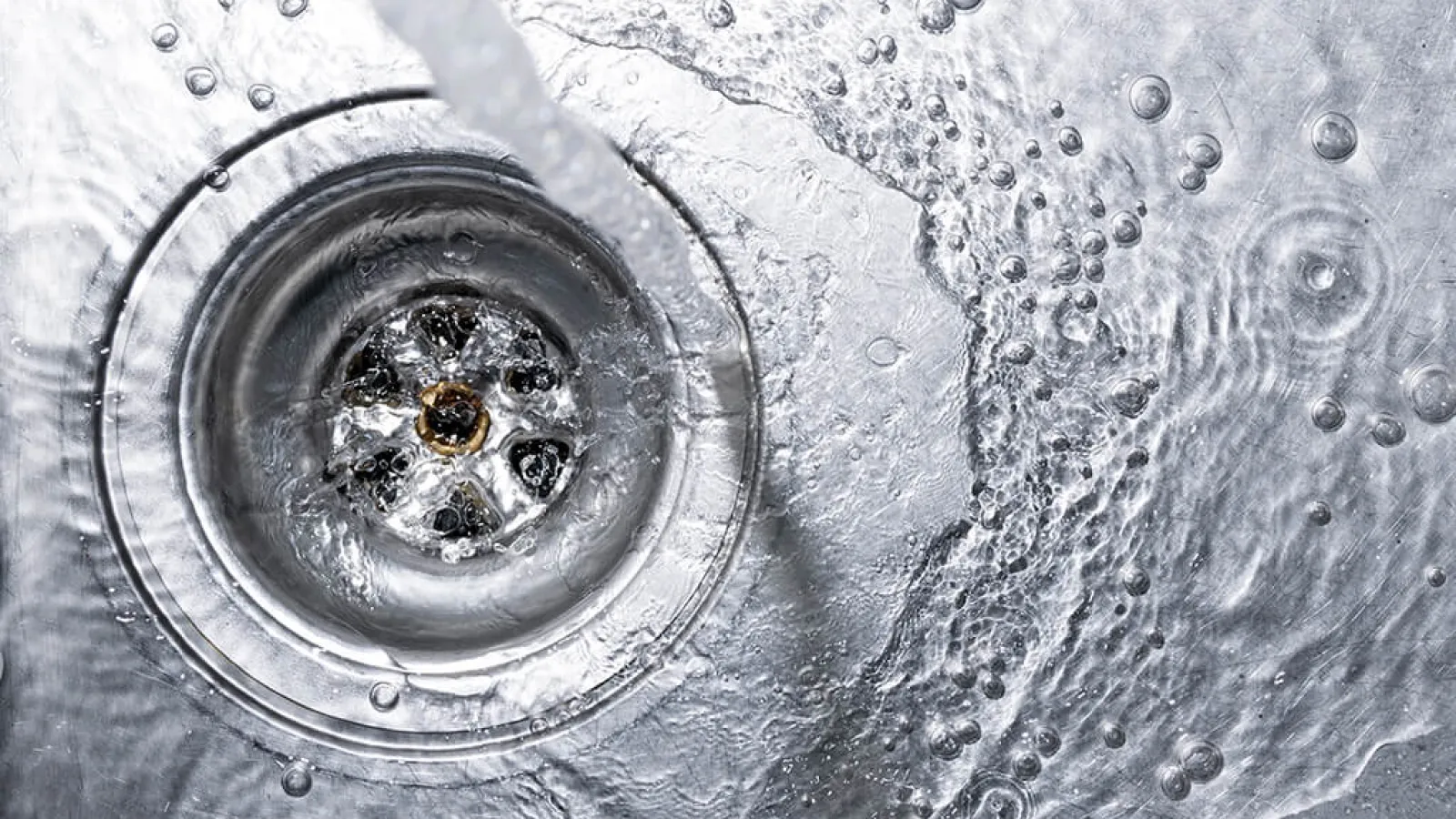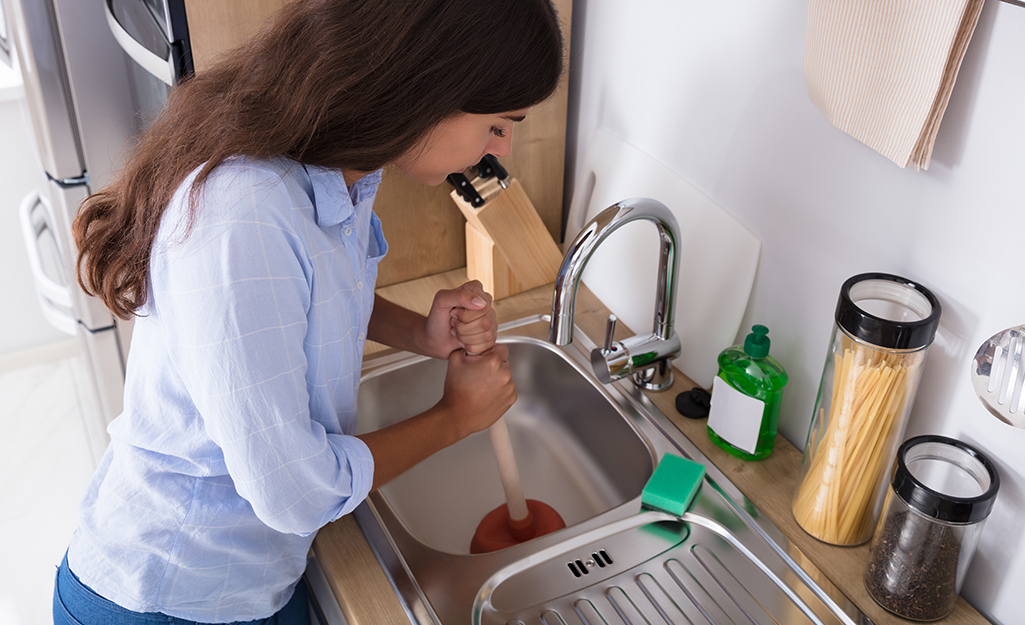How To Quickly Repair A Slow-Draining Sink
How To Quickly Repair A Slow-Draining Sink
Blog Article
Were you trying to locate information concerning How to Fix a Slow Draining Sink?

Intro
We have actually all been there: You're cleaning your teeth or washing your hands, and you discover the water merging in the sink. Rather than rapidly swirling away, it remains, turning your once-refreshing morning regimen into a mini overload scene. A slow-draining sink isn't simply frustrating; it's frequently an indication of larger pipes problems lurking below the surface. The good news is that the majority of slow-draining sinks can be repaired with a little knowledge, a few fundamental devices, and some patience. Prepared to tackle this task head-on? Let's roll up our sleeves and dive right in.
Recognizing the Causes of a Slow-Draining Sink
Prior to you begin poking around in your pipes, it assists to understand what might be triggering the slowdown. Comprehending the root cause makes it simpler to choose the best fix.
Devices and Products You'll Need
The right devices make all the distinction. Luckily, you won't require a completely stocked plumbing professional's van to finish the job.
Step-by-Step Guide to Taking Care Of a Slow-Draining Sink
Now, allow's get into the nitty-gritty. This detailed procedure will certainly lead you via basic strategies to recover your sink's drain.
Action 1: Remove and Tidy the Stopper
Frequently, the stopper (that small plug you lower to obstruct water) is the first offender. Remove it carefully and wipe any type of hair or substance caught around its base. Wash it completely before placing it back in place.
Action 2: Utilize a Plunger to Displace Particles
Got that bettor ready? Position it over the drainpipe and give it a couple of company pumps. The concept is to develop suction that can loosen any kind of obstruction. If you see little bits of particles floating up, you get on the ideal track.
Action 3: Attempt a Drainpipe Serpent or Cable Hanger
If the bettor does not work, it's time to draw out the drain snake. Gently feed it right into the drain and spin as you go. You might feel some resistance-- that's most likely the obstruction. Keep turning and drawing till you remove the obstruction. If you do not have a drainpipe snake, a corrected the alignment of cable wall mount can operate in a pinch.
Step 4: Apply a DIY Drainpipe Cleaner
An all-natural cleaner made from baking soft drink and vinegar can break down residual grime. Put half a cup of baking soft drink right into the drain, followed by half a mug of vinegar. Allow it fizz for about 15 minutes, then flush with hot water. This chain reaction usually does wonders for minor blockages.
Tip 5: Reassemble and Test the Sink
Placed whatever back together and run the tap. Does the water currently swirl down the drain at a respectable speed? If yes, offer on your own a pat on the back. If not, don't despair-- there are still a few even more tricks up your sleeve.
Essential Tools for Do It Yourself Repair Works
A bettor is your go-to beginning point. A tiny, sink-sized plunger creates suction that can remove small blockages. For even more relentless clogs, a drainpipe serpent (occasionally called a plumber's auger) functions wonders. A set of handwear covers, a flashlight, and maybe a set of protective safety glasses are likewise handy.
Advised Cleaning Solutions
Light dish soap and hot water can aid break down oily build-up. A blend of baking soda and vinegar is a reliable home remedy, and enzymatic cleansers offer a more green method. Keep chemical drain cleaners as a last option, as they can be extreme on your pipelines.
Usual Wrongdoers Behind Slow Water Drainage
So, what's blocking points up? Normally, it's a mix of day-to-day debris-- think hair, soap residue, toothpaste residue, and leftover food bits. Gradually, these little bits build up and hold on to the pipe walls, gradually tightening the passage and making it harder for water to go through. Sometimes, mineral deposits from tough water can likewise add to the crud, creating the excellent storm for persistent blockages.
When is it Time to Do Something About It?
If you discover the water draining pipes slower than common, it's an excellent concept to interfere faster rather than later. Waiting also long could cause finish blockages, unpleasant smells, or even pipeline damages. If the water takes greater than a few seconds to clean out after turning off the faucet, consider it a red flag and prepare to put on your DIY hat.
Safety First: Precautions and Preparations
Prior to you launch into unclogging mode, think about safety and security. You're managing potentially dirty water and debris, so slip on a pair of gloves. If you're making use of chemical cleaners, make certain the area is well-ventilated and adhere to the guidelines on the tag.
Safety Gear and Work Area Setup
Set some old towels or dustcloths around the sink area to catch dashes. Remove any type of items that could get in your means, like soap dispensers or toothbrush owners. Make certain you have good lights-- order a flashlight if needed.
Different Techniques for Stubborn Clogs
Not all clogs are developed equal. If your sink still rejects to work together, take into consideration these alternate remedies.
Baking Soda and Vinegar Technique
We already discussed this, yet it deserves noting again. This gentle, green technique is much safer than chemical cleaners and commonly fairly reliable.
Enzymatic Drain Cleansers
Enzyme-based cleansers make use of all-natural bacteria to absorb raw material. They're an excellent choice if you're seeking to prevent extreme chemicals. Simply keep in mind, they may take a bit longer to work their magic.
Chemical Drainpipe Cleaning Company: Pros and Cons
Chemical cleansers can blow up through challenging obstructions quick, but they're not without downsides. They can produce heat and fumes, damages pipes if used exceedingly, and position ecological dangers. Use them sparingly, and constantly follow the instructions meticulously.
Preventive Measures to Maintain Your Sink Flowing
Avoidance is the best cure. By adopting a few straightforward routines, you can maintain your sink from slowing down to begin with.
Routine Cleaning Up Behaviors
Clean down the sink basin and component area frequently. Eliminate hair or food particles before they have a possibility to wash down the drainpipe.
Preventing Harmful Substances Down the Drain
Think twice before dumping coffee premises, oil, or coarse vegetable scraps down the sink. These wrongdoers hold on to pipe walls, creating clogs gradually.
Regular Maintenance Checks
Schedule a fast regular monthly evaluation. Run warm water with the sink for a couple of minutes, focusing on the circulation. If it appears slow-moving, act fast prior to it becomes a full-blown obstruction.
When to Call a Specialist Plumbing Professional
Often, no matter just how hard you attempt, that obstruct just won't move. That's when it's time to bring in the pros.
Indicators That Indicate a Much More Serious Problem
If your sink drains gradually regardless of multiple efforts, or if you notice water backing up in other fixtures (like your shower or bathroom), you might have an extra major plumbing problem hiding deeper in the system.
Balancing DIY Efforts with Expert Assistance
While DIY can save you money and offer a sense of success, there's no shame in calling a specialist. A specialist plumbing professional can examine your entire plumbing configuration, making certain there's no underlying damage or long-lasting trouble that can cost you more down the road.
Comparing Expenses and Long-Term Solutions
Prior to making a decision, take into consideration the big picture. A low-cost, quick fix could resolve the trouble briefly, but purchasing a much more permanent service might save you cash and stress over time.
Weighing the Costs of Do It Yourself vs. Professional Solutions
DIY fixes usually cost little bit greater than the price of a bettor or a bottle of cooking soft drink. Expert solutions, on the other hand, included a cost however might avoid repeated concerns and pricey repair work later.
Purchasing Top Quality Fixtures and Upgrades
If your sink's design contributes to regular blockages, it could be worth updating to higher-quality fixtures or altering the pipes format. Consider this a financial investment in your home's capability and comfort.
Conclusion
A slow-draining sink can feel like a small inflammation, however it's frequently an indication that your plumbing needs a little tender loving care. By comprehending the root causes, using the right devices and methods, and devoting to straightforward preventive measures, you can keep your sink streaming freely. And when all else stops working, never ever hesitate to employ a professional-- your home's pipes deserves the investment in care and upkeep.
Three Common Ways to Fix a Slow Drain
Baking Soda Method
Boil a full pot of water. Measure out cup of baking soda and pour it down the drain. Then take cup of the magical cleansing substance known as white vinegar and drop that down there too. Allow the mixture to fizz in the drain for five minutes as the vinegar and baking soda combine. Now dump in that whole pot of boiling water. This combination of cleaning substances should clear out anything that is causing your sink to drain slowly. If it doesn t...
Zip-It
If the baking soda method doesn t clear out your drain, it may be because a significant amount of hair and/or other debris has collected there and you need to remove it. Purchase a Zip-It tool at any home improvement or hardware store and insert it into your drain. It will catch any collected hair or debris that s blocking the flow of water. Pull it out. If it s got a big clump of hair, etc. on the end, you ve probably got your culprit.
Drain Cleaner
If these methods don t work, there is the standard drain cleaner that you can also buy in a hardware store or even your local grocery store. It s better if you can use a household solution, but these drain cleaners often work in a pinch. They re very simple to use. You generally just dump them in your drain and wait. If even this method is not effective, it may be time to call the plumber.
https://www.mrrooter.com/oneida/about-us/blog/2017/july/three-common-ways-to-fix-a-slow-drain/

We had been made aware of that write-up about Solved! How to Fix a Slow Sink Drain through an associate on another web blog. Remember to take the time to promote this page if you enjoyed it. Many thanks for your time spent reading it.
Get Your Estimate Now Report this page